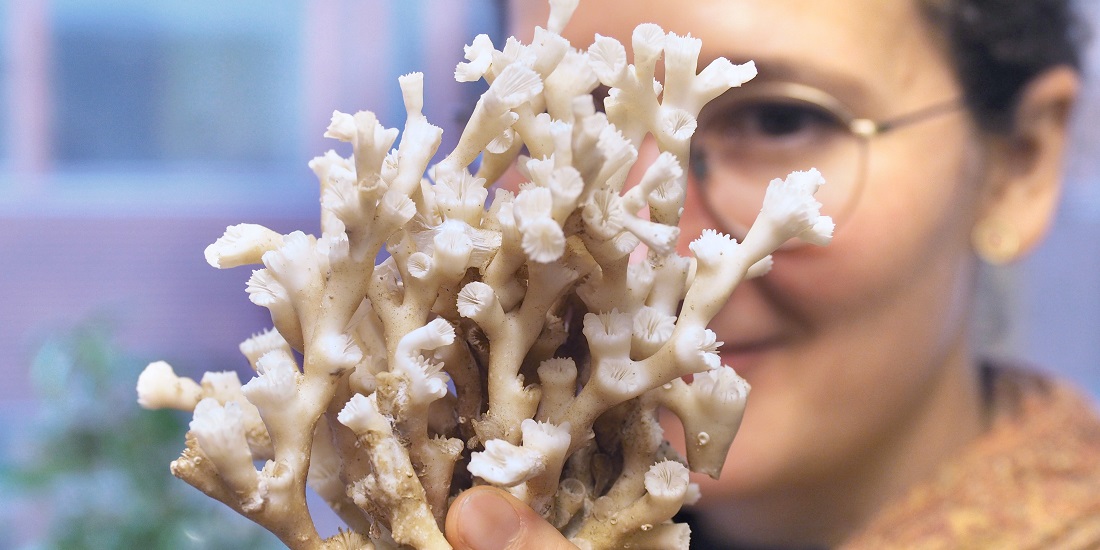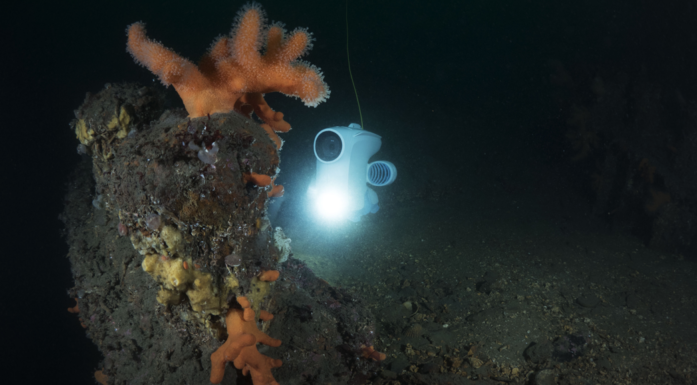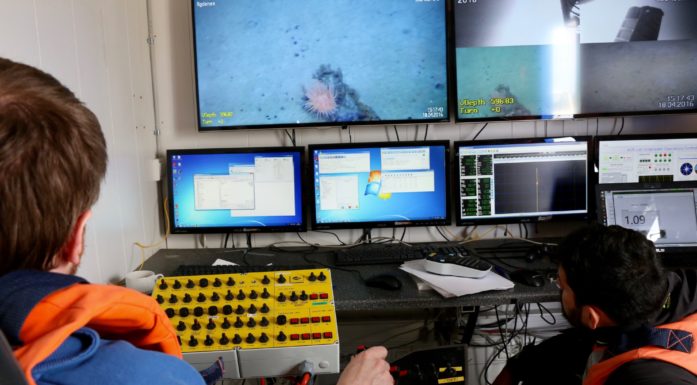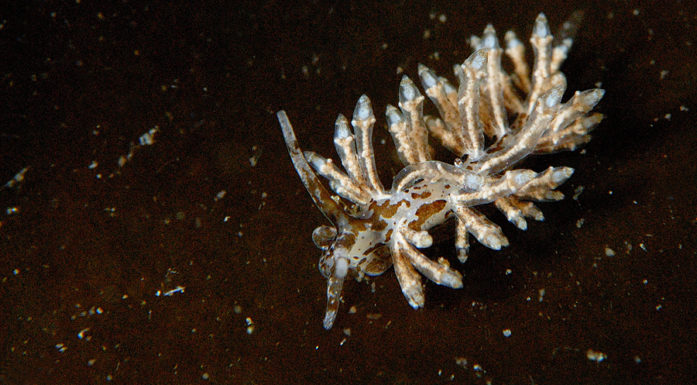ERC support for coral research
Lena van Giesen, an associate professor at NTNU’s Department of Biology, was awarded EUR 1.7 million by the European Research Council (ERC) to study larval development of the coral Lophelia pertusa as well as its environment.
This cold-water coral Lophelia pertusa is common in the Trondheim Fjord and is a reef-forming deep-sea species that is found worldwide.
Van Giesen will investigate how the sensory organs of the coral’s larvae function and react to signals from the outside world and will study the animal’s behaviour more generally. She will investigate how the coral and the ecosystem in which it lives are affected by changes in water temperature, salinity and pH levels.
Lena van Giesen is in the Animal Physiology research section at the Department of Biology.
“I feel incredibly honoured to receive this award,” she said. “The ERC starter grant will help me to establish my new lab and pave my path as an independent investigator.”
Corals play an important role in the oceans. Some, like Lophelia pertusa, build reefs. Coral reefs are formed by colonies of coral polyps held together by a calcium carbonate skeleton produced by the coral.
The reefs form the basis for some of the most diverse marine ecosystems on the planet. All species in an ecosystem are interdependent. That means that any negative impacts on one species can have consequences for all other species in the ecosystem.
Coral reefs also provide many positive benefits for life on Earth. Among other things, reefs absorb wave energy and help reduce erosion around coasts. They can limit the damage caused by storms, hurricanes and other cyclones, and to some extent the energy of tsunamis.
The unique ecosystems where corals live have suffered enormous damage due to human-caused impacts. These habitats are also predicted to be among the most negatively affected by environmental changes from global warming.
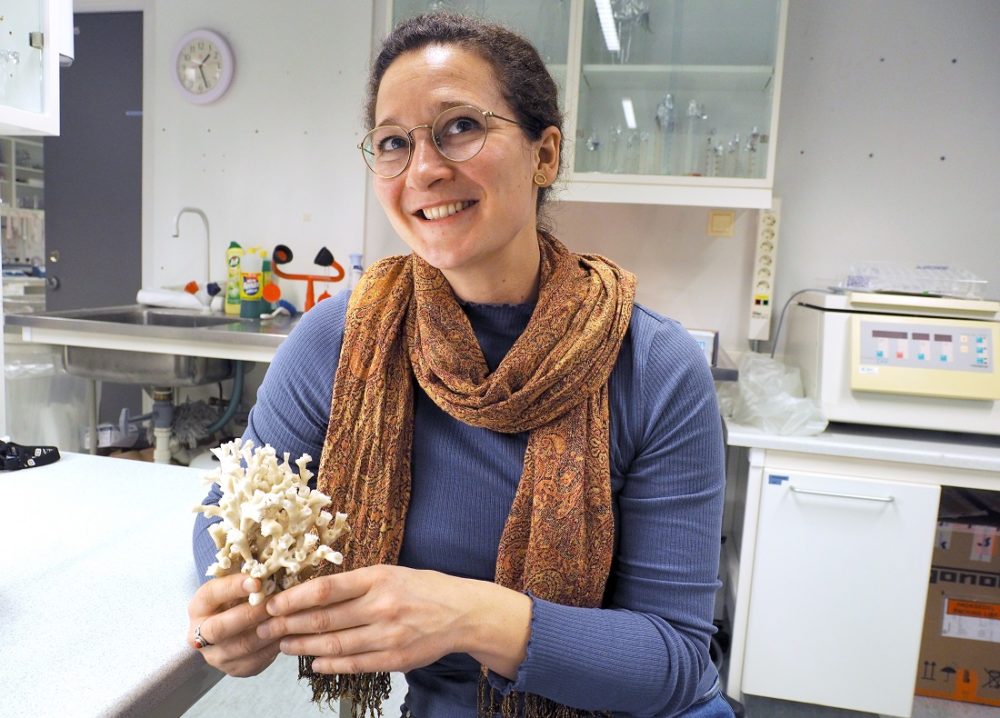
The ERC starter grant will help me to establish my new lab and pave my path as an independent investigator, says Lena van Giesen. Photo: Per Henning, NTNU
Old and sensitive
Corals are among the oldest living animals on Earth. They can live for thousands of years. Although corals can get very old, they are sensitive animals. The resilience and health of the reefs are not only dependent on adult animals, but also on resettling by young animals. The corals’ larvae are very sensitive to signals from the outside world and actively choose a permanent settlement side. However, many aspects of this behaviour are currently not well understood.
One of the main goals of the research is to get a better understanding of how corals metamorphose, which is when individuals transform from a moving larva to a settled polyp that can attach itself to a rock and start forming a reef.
Limited research on cold-water corals
While there is extensive knowledge of tropical coral species and the harm caused by human influences, cold-water, deep-sea coral reefs are less well studied because they are hard to access.
Lophelia pertusa is a deep-water coral that thrives in cold temperatures and is commonly found at relatively shallow depths in the Trondheim Fjord, making this species accessible for research here in Norway.
Only limited research has been conducted on this coral species, so that our understanding of the biology of these animals lags behind what we know of other coral species. This is something Lena van Giesen wants to change.
- You may also like: Corals changed by CO2
Complex sensory functions and signals
Navigating in a world full of complex information requires an animal to have advanced sensory organs. It must be able to filter and encode relevant signals to guarantee its survival.
These sensory structures are the first connections between the outside world and the animal’s nervous system. They are composed of complex cellular and molecular features that have evolved to suit the animal’s unique behaviour.
Van Giesen’s research revolves around building an understanding of these sensory functions and signals as well as the general behaviour of the Trondheim coral.
“Funding basic research is incredibly important, and this award enables us to harness the unique opportunity to investigate new aspects of this important coral species by developing new and challenging methods and protocols. This is an endeavour that would have never been possible without the generous amount of funding I received from the ERC,” van Giesen said.
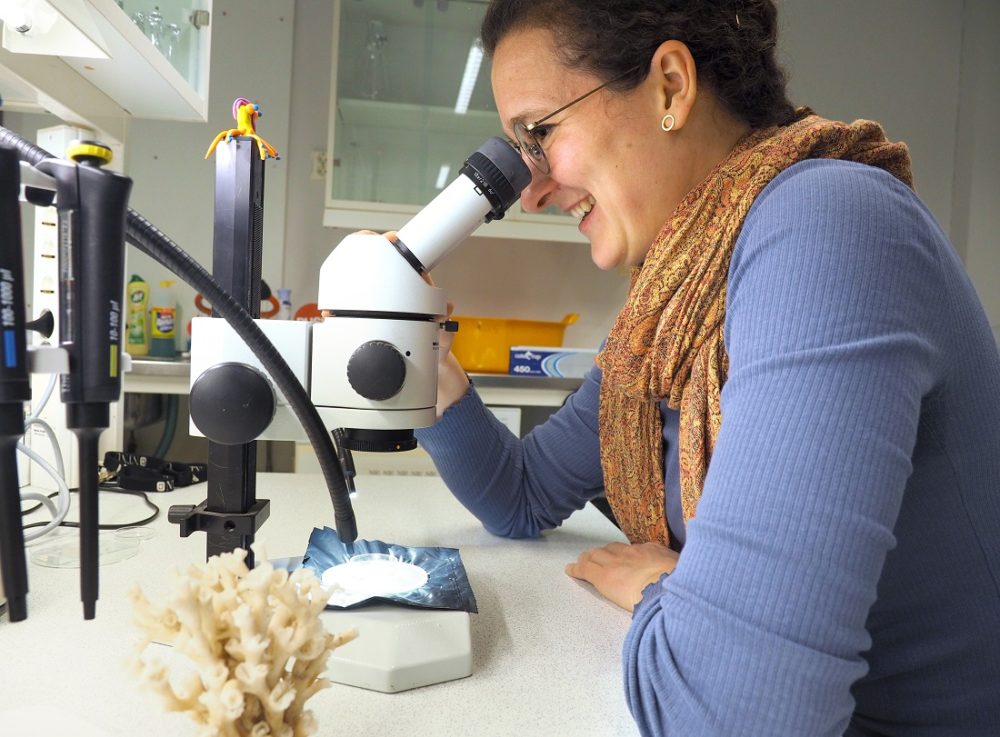
Lena van Giesen’s research revolves around building an understanding of these sensory functions and signals as well as the general behaviour of the Trondheim coral. Photo: Per Henning, NTNU
Unknown effects with changed water conditions
In addition, it’s still not known how this deep-water coral is affected by changes in seawater temperature, salinity, pH levels and pollution.
The support that van Giesen has been granted will be used exclusively to research Lophelia pertusa in the Trondheim Fjord.
The research will contribute to basic knowledge about the animal that can help us understand what kinds of regulations are needed to protect deep-water corals from harm.
- You may also like: Blocking the sun to control global warming
Help to preserve important ecosystems
Changes in temperature and acidity in seawater might also affect the occurrence and composition of microorganisms in the coral’s habitat. The microorganisms control key aspects during the coral’s complex life cycle, for example the recruitment of larvae, a process that ensures the health and resilience of the reefs.
Van Giesen’s research will provide a foundation for understanding fundamental aspects of the corals’ biology, knowledge that is urgently needed to better assess threats to this species. The research includes ground-breaking investigations into the mechanistic basis of cellular and molecular signal recognition in this species.
Understanding the mechanisms behind the coral’s choice of habitat and factors that affect the coral’s life from larva to fully developed coral is important. This knowledge is necessary to preserve these corals and ensure resilient ecosystems for a sustainable future.
